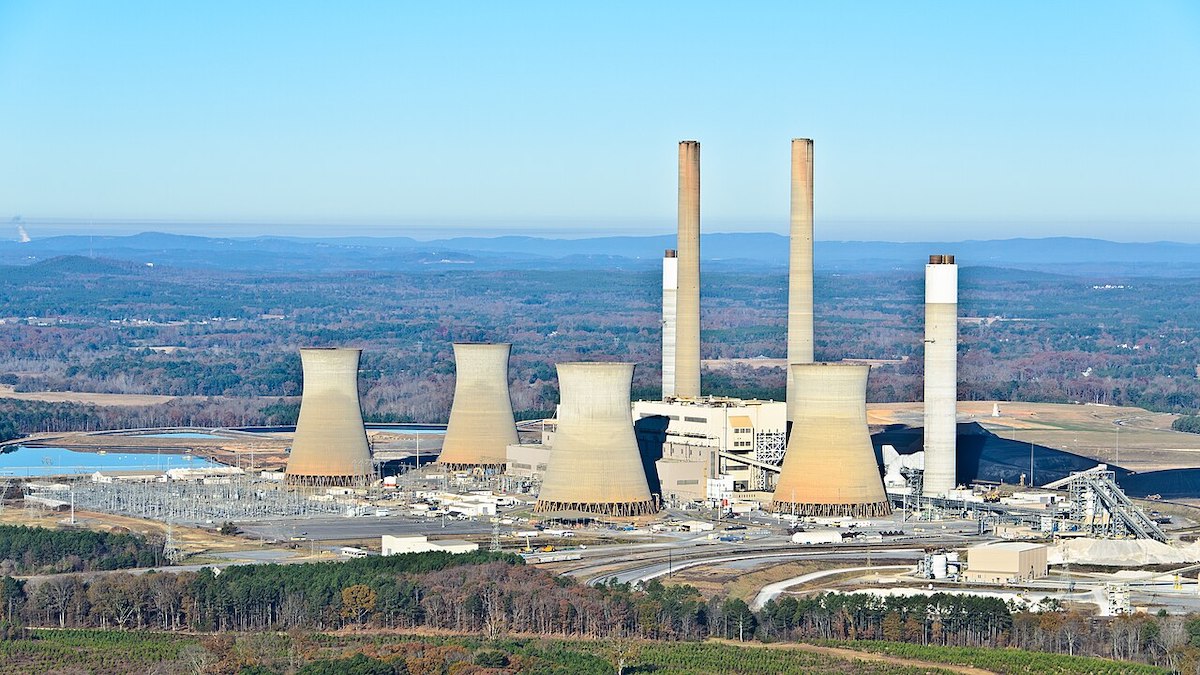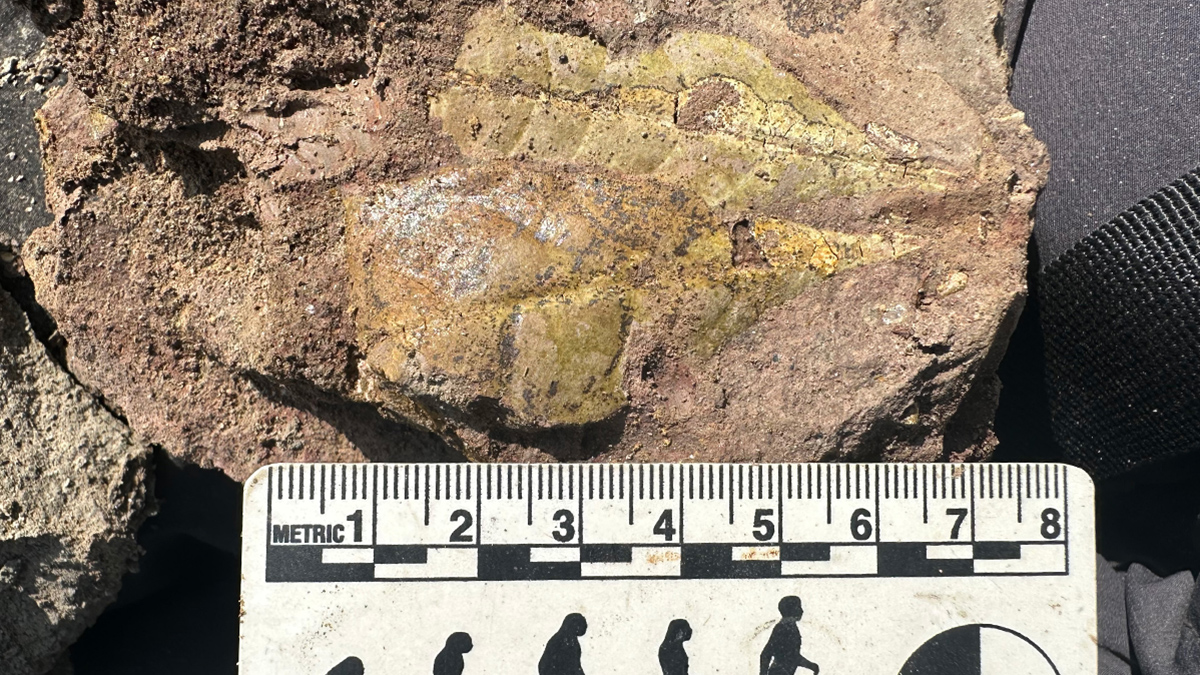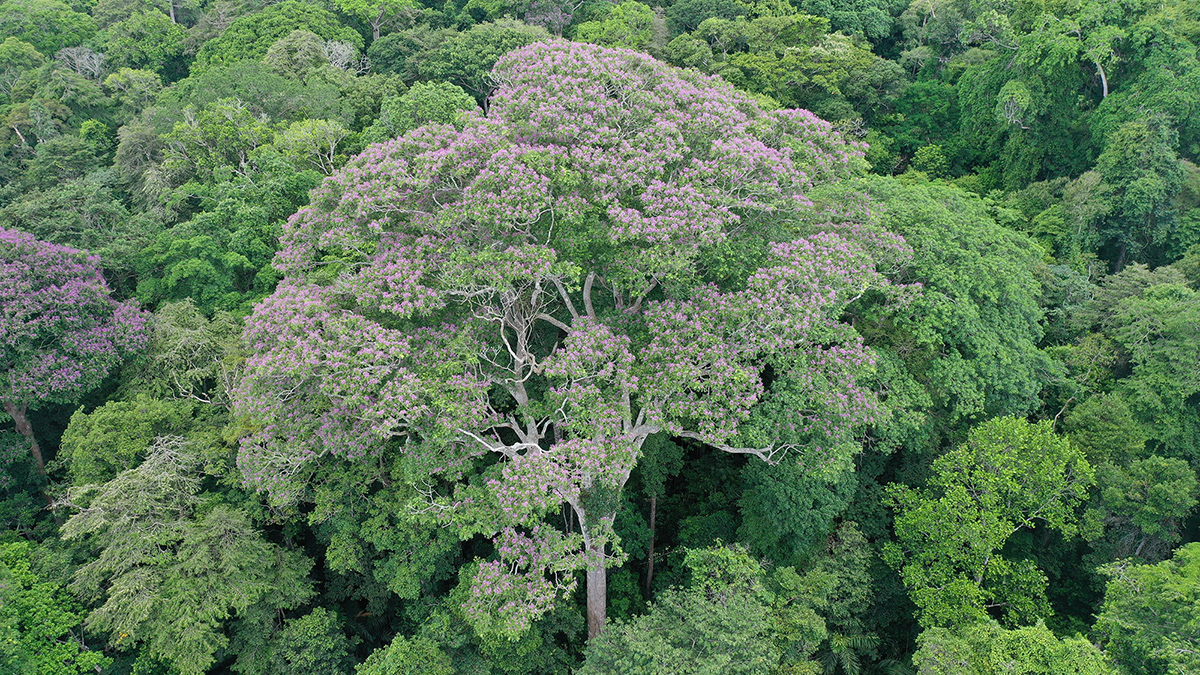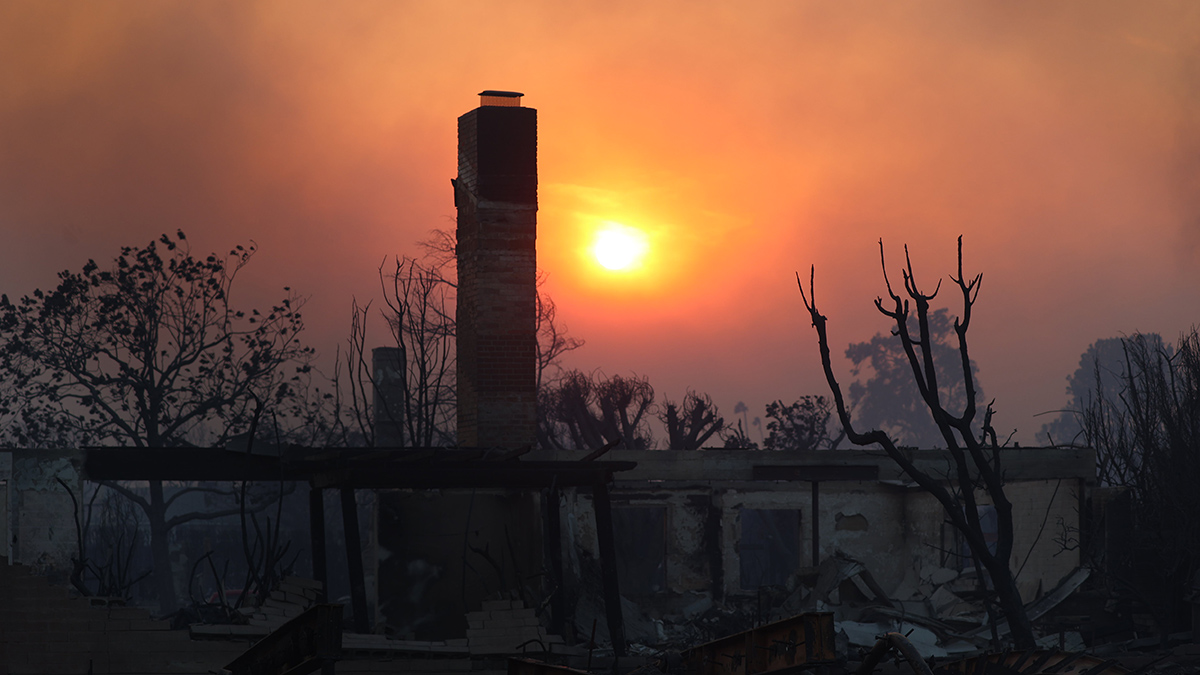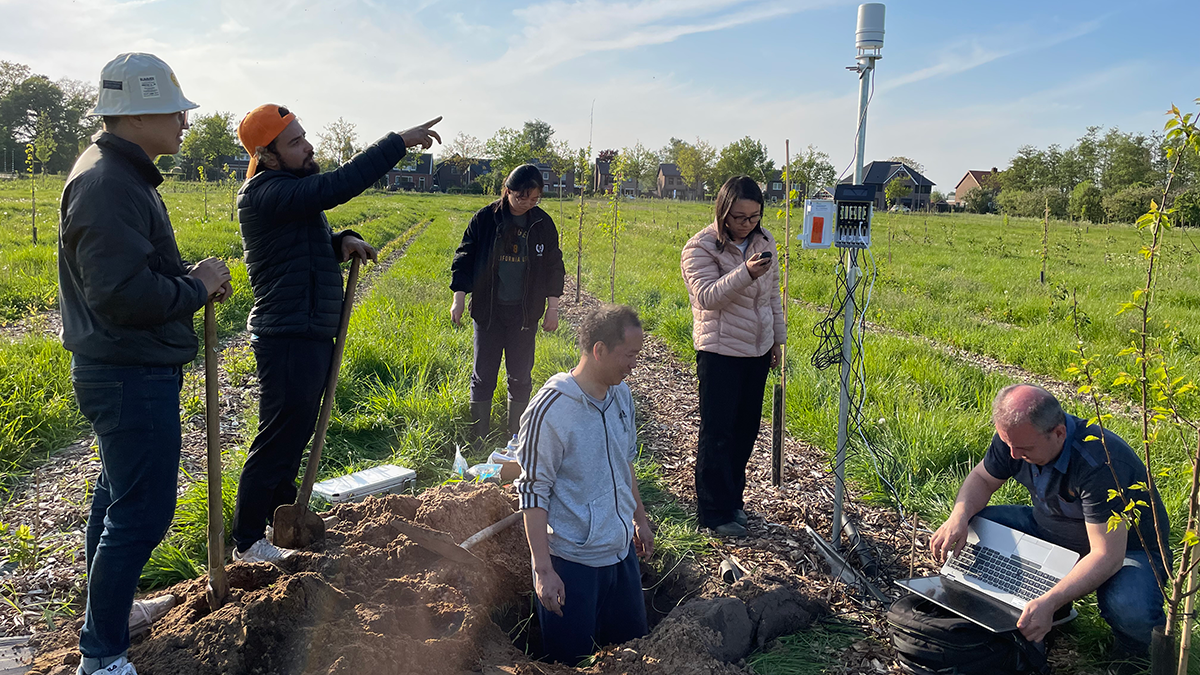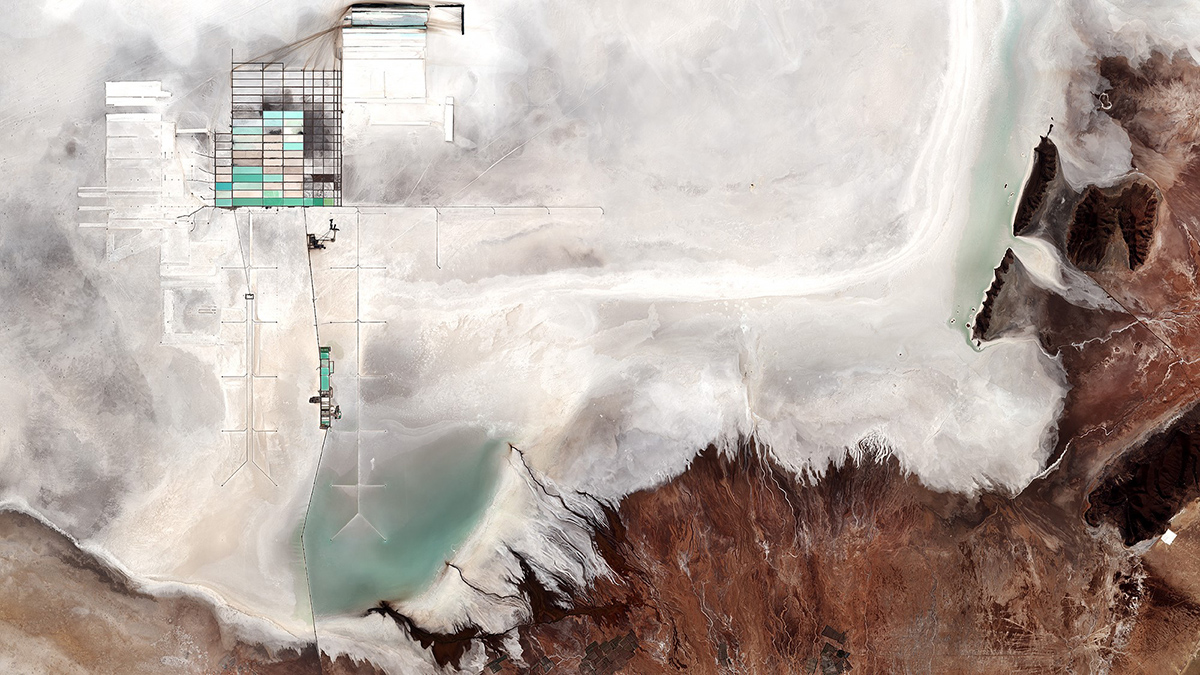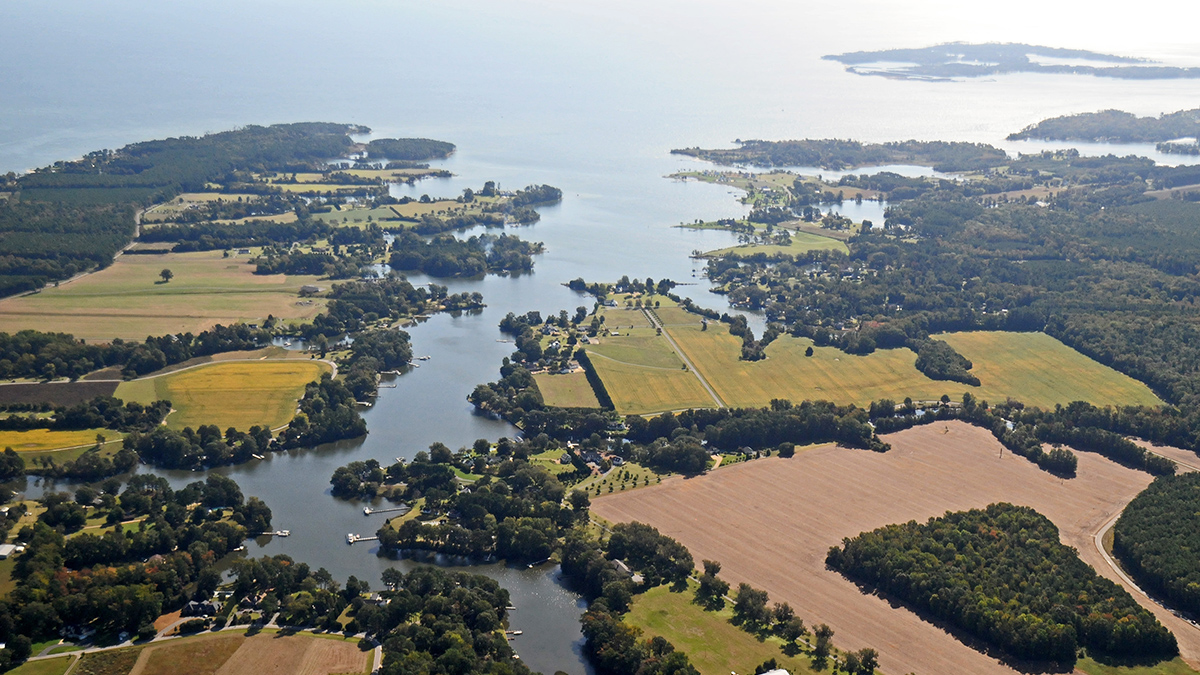On 11 June, the Environmental Protection Agency announced a proposal to repeal federal limits on power plant carbon emissions, including a Biden-era rule requiring power plants to control 90% of their carbon pollution and a 2015 standard limiting carbon dioxide emissions from new fossil fuel-fired power plants.
Health & Ecosystems
Early Apes Evolved in Tropical Forests Disturbed by Fires and Volcanoes
Fossils discovered at an early Miocene site in Kenya include a new type of early ape and offer clues about the environment inhabited by human ancestors.
Algunos árboles tropicales se benefician de los rayos
Dos imágenes muestran el mismo árbol, antes (izquierda) y después (derecha) del impacto de un rayo. En la imagen de la derecha, el árbol no está cubierto de enredaderas leñosas y algunos de los árboles que lo rodean han muerto.
Charting a Path from Fire Features to Health Outcomes
A new framework aims to better equip scientists, communities, and decisionmakers to characterize data and rapidly respond to wildland-urban interface fires and their effects on public health.
Los ríos de Brasil se están infiltrando
La extracción desmedida de aguas subterráneas podría estar obligando a los ríos a infiltrar agua hacia el subsuelo, según muestra un nuevo estudio. Las regiones con actividades de irrigación intensivas son las más expuestas a este riesgo.
Keeping Soil Healthy: Why It Matters and How Science Can Help
Healthy soil is the foundation of our food, clean water, and a stable climate, and cutting-edge science helps us to protect it.
As Climate Changes, So Do Gardens Across the United States
Warmer winter temperatures have altered frost patterns and growing seasons across the United States, forcing botanical gardens and arboretums to adapt.
Preocupaciones sobre el litio, el agua y el clima en los dos desiertos más altos de la Tierra
La extracción de salmuera para satisfacer la demanda de recursos en medio de la transición a energías renovables está afectando los recursos hídricos en Sudamérica y China. Los hidrólogos pueden ayudar a comprender cómo y a sumarse a la búsqueda de soluciones.
Cheese in the Time of Industrial Farming and Climate Change
Grasslands and cows’ diets are shifting as the climate warms, but an agricultural experiment in France reveals the importance of providing cows with pasture.
River Alkalinization and Ocean Acidification Face Off in Coastal Waters
Factors ranging from rainfall to nutrient runoff to changing mining and agricultural practices drove decades-long pH trends in the Chesapeake Bay.

